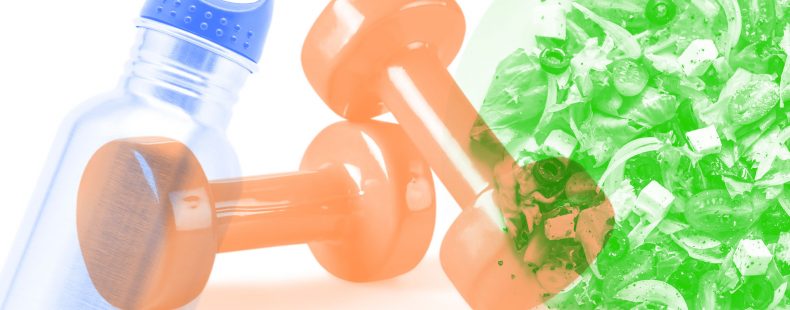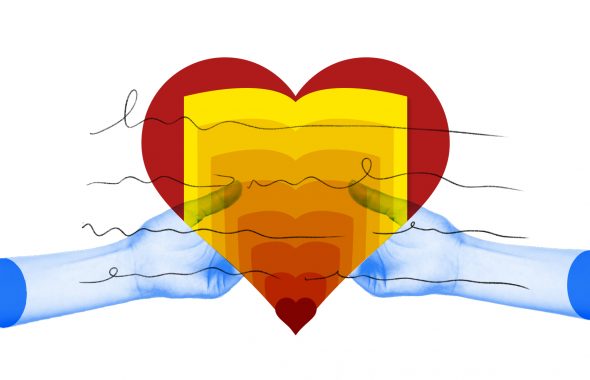Another new year, another round of the not-so-new tradition of making New Year’s resolutions. As a dictionary, we’re not here to give advice on self-improvement goals, which are often personal and private. Instead, we can provide some exceptional words you can use to describe the resolutions you may have planned ahead for 2024. As a bonus, these words are perfect inspiration if your resolution is “Level up my vocabulary.” (What a goal!)
Here are some of the most common and top New Year’s resolution ideas out there as well as a fitting trio of terms for each one.
Exercise more
calisthenics: A singular or plural word for exercises that don’t need equipment.
sinewy: A synonym of words like tough or brawny to describe someone who has big, strong muscles.
proprioception: Also known as kinesthesia, this word refers to the body’s ability to unconsciously orient itself in order to quickly move without you losing your balance.
Eat healthier
appetence: A word for an intense craving; many of us resolve to satiate our body’s cravings with more nutritious, healthier foods.
flexitarian: A vegetarian that eats meat sometimes. A flexitarian diet lessens meat consumption without banning it completely.
abstemious: An adjective that means to practice moderation when it comes to eating and drinking.
Spend more time with friends and family
saudade: A Portuguese word for an intense sadness you feel when someone is not there. The slangy word misslieness also refers to this gloomy feeling.
wabi-sabi: A Japanese term for a worldview that finds beauty in imperfection. Nobody is perfect, and realizing that fact goes a long way to building stronger relationships.
resarciate: A transitive verb that means to make amends for something, such as apologizing after saying something hurtful to a loved one.
Lose weight
salubrious: An adjective that means healthful. The important thing is to have a healthy weight, which notably isn’t the same thing as a slim physique.
Kummerspeck: A name for the weight people gain when they overeat in response to bad times, such as the bad times we had during the pandemic. (Perhaps you learned this term then?)
amour-propre: A synonym of self-esteem or self-respect. This word reveals whose opinion matters the most when deciding to lose weight: your own!
Live more economically
frugality: A noun that describes someone who wants to avoid spending a lot of money on unnecessary things.
pecuniary: An adjective that means something involves or is related to money.
bargainous: An informal adjective that describes an item as being cheap, just like a great bargain.
Spend less time on social media
nomophobia: An unofficial term for the fear of not having a mobile phone. Many of us have come to depend on our phones, which means a social media update is often just a thumbpress away.
JOMO: This term, which means “joy of missing out,” refers to being so happy about your own life that you don’t worry about what other people are doing.
otiose: A synonym of idle or slothful. Many of us find pleasure in sitting around doing nothing, and idle hands often lead to ideal selfies.
Improve job performance
velleity: A noun that means a weak desire or a wish someone doesn’t actually try to make come true. Many people resolve to turn velleity into diligence.
nikhedonia: An obscure word for the pleasure a person feels when expecting success.
ataraxia: A synonym of words like serenity or tranquility.
Reduce stress on the job
meraki: A Greek word that means to do something with passion and pleasure.
arbejdsglæde: A Danish word that means “happiness at work.”
demob-happy: A word that means happiness from knowing that a bad period is about to end. This word is perfect to describe people who are planning to be part of the next Great Resignation.
Take care of your mental health at work or at home by learning how to talk about it with this guide.
Quit smoking
smobriety: A state of being smoke-free, i.e. a smoking sobriety.
saining: Sain is an archaic verb that means to mark something with a cross to protect against evil. Quitting smoking is not easy, and those who hope to quit will need to metaphorically sain themselves against the influence of nicotine.
fumiphobia and capnophobia: Two very obscure words that mean “fear or hatred of smoking.”
Cut down on alcohol
crapulous: An adjective that describes something as being related to overindulgence in drinking. Many resolution-makers apparently don’t want this word to describe them.
tope: A verb that means to excessively drink alcohol. Another word that hopefully won’t be used to describe those making resolutions.
dipsomania: A word not in technical use that means an irresistible desire to drink alcohol. Please note: words like dipsomania and alcoholism are not actually used in medicine. The proper medical term for a dependence on alcohol is alcohol use disorder. Even if someone doesn’t actually have this disorder, we should still think carefully about the words we use to describe someone who habitually drinks alcohol or uses other similar substances.
Take our quiz!
You’ll want to make sure your vocabulary is truly worthy of this new year! Check your knowledge of these exciting words with the Top Words for Top Resolutions word list. Ready for a challenge? Then take our quiz to see if you can match these words to the corresponding New Year’s resolutions on the top of everyone’s list!














